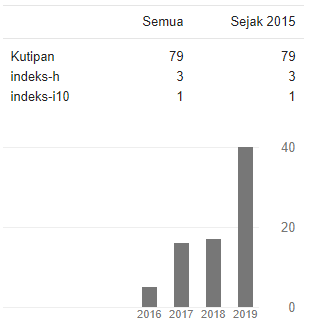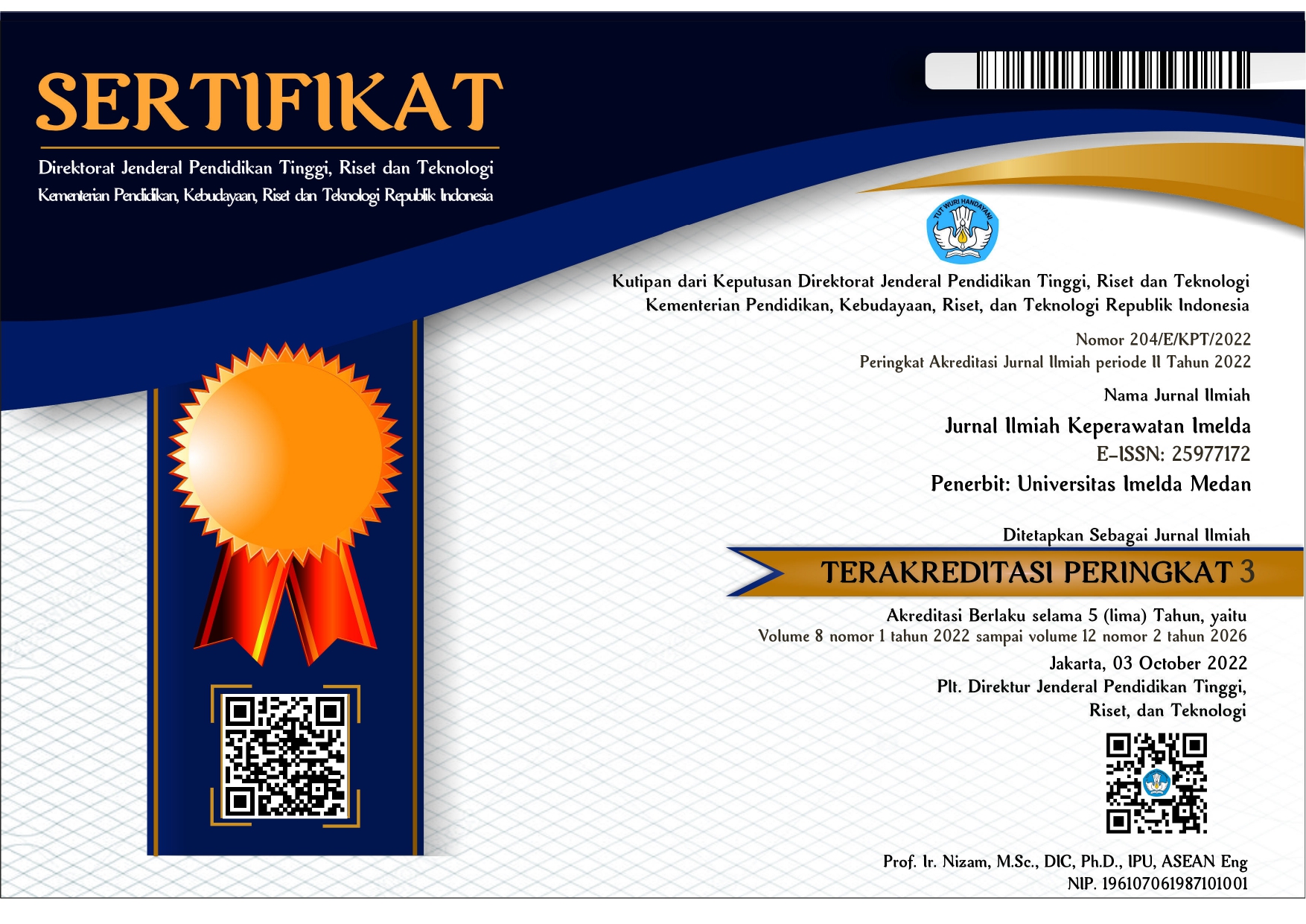HUBUNGAN DUKUNGAN KELUARGA DENGAN KEPATUHAN MENJALANI DIET PADA PASIEN DIABETES MELITUS DI WILAYAH KERJA PUSKESMAS BINJAI ESTATE
DOI:
https://doi.org/10.52943/jikeperawatan.v7i2.606Keywords:
Family Support, Diet Compliance, Diabetes MelitusAbstract
Diabetes mellitus (DM) is a chronic metabolic disorder characterized by a deficiency in the production and utilization of the pancreatic hormone insulin. Family has an influence on the attitude and acceptance of health education for Diabetes Mellitus patients. Because this disease has a big challenge to achieve success in its management, because it must be carried out for life so that saturation and non-compliance often occur. Family support is needed to improve dietary adherence to DM patients. The purpose of this study was to determine the Relationship between Family Support and Compliance with Diets in Diabetes Mellitus Patients in the Binjai Estate Health Center Work Area in 2020. This type of research is a qualitative non-experiment with a correlation design carried out by Melitus in the Work Area of ??the Binjai Estate Health Center January - July 2020. The population in this study were all people with diabetes mellitus in the working area of ??the Binjai Estate Health Center, totaling 125 people. The sample in this study were patients with diabetes mellitus who live in the working area of ??the Binjai Estate Community Health Center and who were willing if the researcher asked for their data, 25 respondents. The results of the study were 13 respondents (52%) had good family support by having 12 respondents (48%) adhering to the diabetes mellitus diet obediently, 1 respondent (4%) having adherence to the diabetes mellitus diet with disobedience, respondents who had support 9 respondents (36%) had sufficient family compliance with 4 respondents (16%) adhering to the diet, while 5 respondents (20%) had obedient dietary adherence (20%), and 3 respondents had less family support (12 %), who have adherence to diet and not adhere to as many as 3 respondents (12%). Based on the results of the chi-squer test, there is a relationship between family support and adherence to diet in diabetes mellitus patients (p = 0.003 <0.05) with the correlation between variables being 0.003, which means that Ho is rejected Ha accepted. Suggestion: It is hoped that the family will provide support in the form of motivation, support, and guidance in the form of morale and material so that the patient is more able to follow the diabetes mellitus diet in maintaining blood sugar levels.
Downloads
References
American, D. A. (2012). Diabetes Care The Journal of Clinical and Applied Research and Education. Volume 42, Supplement 1, 54.
Arikunto, S. (2010). Prosedur Penelitian Suatu Pendekatan Praktek. Yogyakarta: Rineka Cipta.
Arifin, & Damayanti, S. (2015). Hubungan Dukungan Keluarga Dengan Kepatuhan Dietdiabetes Melitus Tipe 2 Di Poli Penyakit Dalam. Jurnal Keperawatan Respati, II(September), 1–18. http://nursingjurnal.respati.ac.id/index.php/JKRY/article/view/174/83
Bangun, A. V., Jatnika, G., & Herlina. (2020). Hubungan antara Dukungan Keluarga dengan Kepatuhan Diet pada Penderita Diabetes Mellitus Tipe 2. 3(1), 66–76. http://pustaka.unpad.ac.id/wp-content/uploads/2015/01/Artikel-Ilmiah1.pdf
Damayanti, D. (2013). Sembuh Total Diabetes, Asam Urat, Hipertensi Tanpa Obat. Yogyakarta: Pinang Merah.
Damayanti, S. (2018). Diabetes Mellitus & Penatalaksanaan Keperawatan. Yogyakarta: Nuha Medika.
Friedman M and Marilyn. 2010. Buku Ajar Keperawatan Keluarga: Riset, Teori & Praktek. Jakarta: EGC.hlm.108-225.
Hidayat, A. A. (2007). Metode Penelitian Keperawatan dan Teknik Analisis Data. Jakarta: Salemba Medika.
Nursalam. (2008). Konsep dan Penerapan Metodologi Penelitian Ilmu Keperawatan. Jakarta: Salemba Medika.
PERKENI. (2011). Konsensus pengelolaan diabetes melitus tipe 2 di indonesia 2011. Semarang: PB PERKENI.
Prof.DR.Dr. Sidartawan Soegondo, S.-P.-K. F. (2018). Penatalaksanaan Diabetes Melitus Terpadu, Edisi kedua. Jakarta: Balai Penerbit FKUI.









